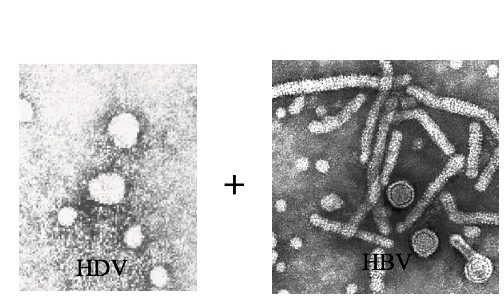“Even fleas have fleas.”
Hepatitis Delta Virus is a defective ssRNA virus in an unclassified family that is affectionately referred to as a viral parasite because of its inability to replicate without the presence of Hepatitis B virus in the host.
This webpage includes pertinent information about HDV, including a viral profile, new findings from 2007-2008, and clinical features of HDV infection.
Use the site navigator on the left to take a look around!
 Rizzetto, 1980.
Rizzetto, 1980.
10 Things to Remember about Hepatitis Delta Virus
1. Single stranded circular RNA genome
2. HDV virion is coated with Hepatitis B surface antigens
3. Produces two proteins – HDAg-S and HDAg-L
4. Replication requires co-infection or super infection with Hepatitis B virus (HBV)
5. Three genotypes (genotype I, II, III)
6. Transmitted through parenteral and sexual routes
7. Infection results in acute or chronic hepatitis, cirrhosis, or fulminant hepatitis
8. Tropism for hepatocytes

9. HDV infection can be prevented by HBV vaccine
10. 15 million people are infected with HDV globally


